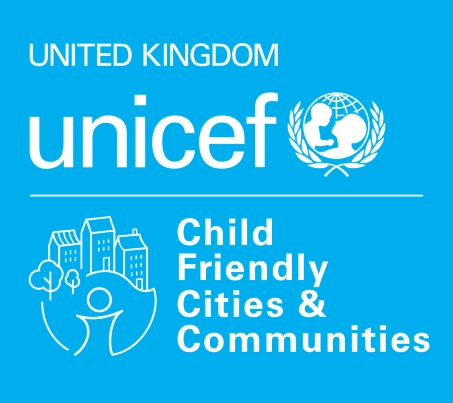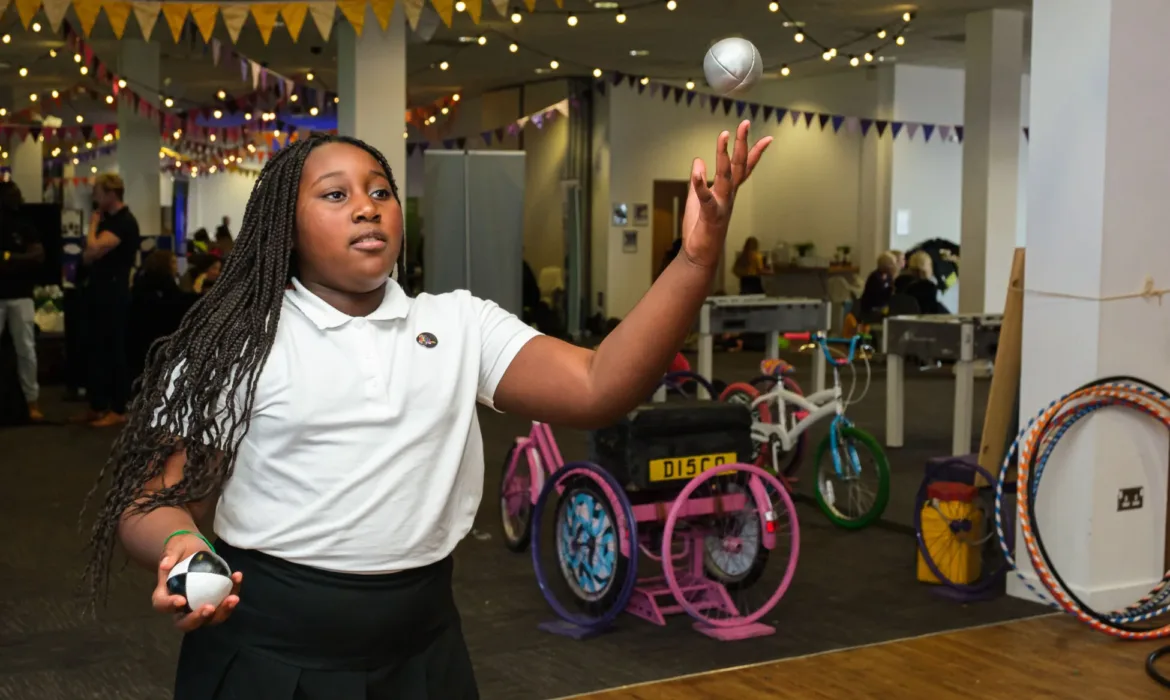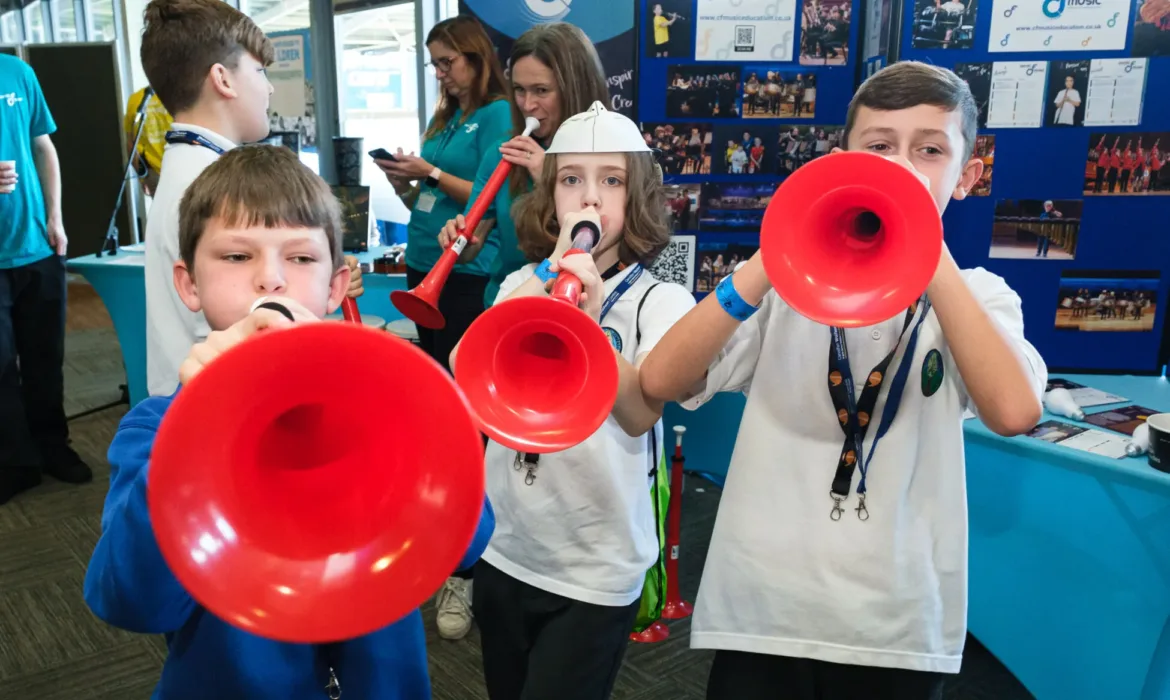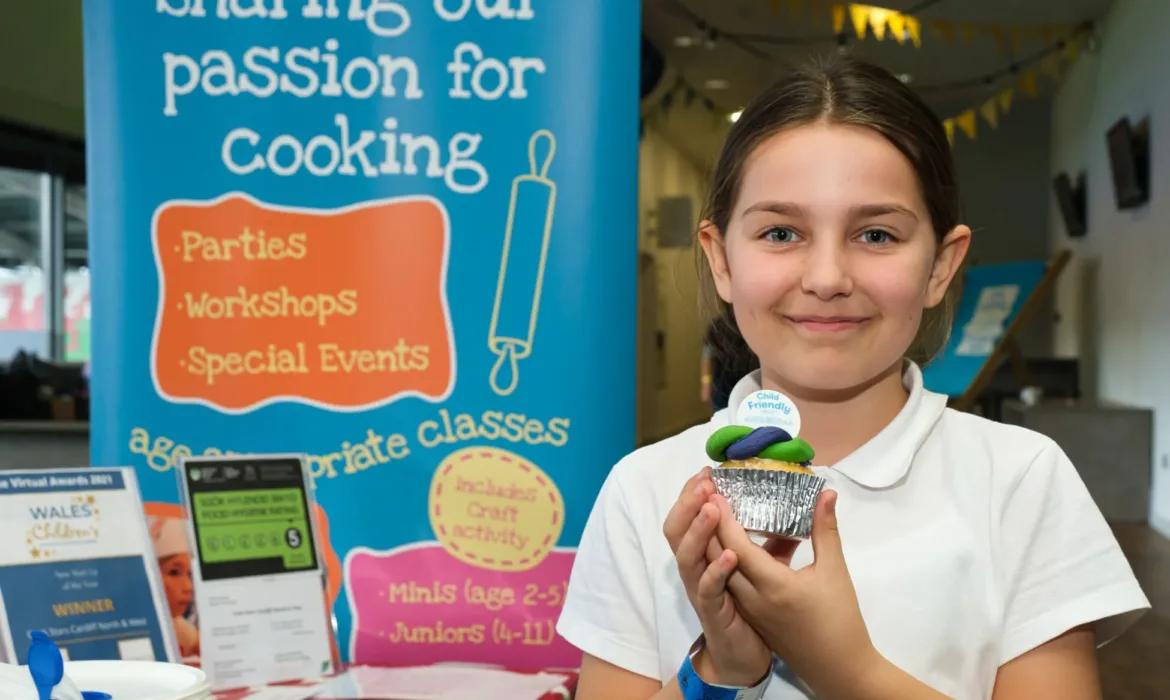
Celebrations in Cardiff
City becomes the UK's first UNICEF Child Friendly City
Cardiff has become the United Kingdom’s first ever UNICEF Child Friendly City.
Cardiff Council and its local partners joined the Child Friendly Cities & Communities programme in 2017. Since then, the partnership has been implementing strategies to embed children’s rights – as outlined in the United Nations Convention on the Rights of the Child – into the way it develops policies, makes decisions, and delivers services. Working with the city’s children and young people, Cardiff prioritised six key areas: Cooperation and Leadership; Communication; Culture; Health; Family and Belonging; and Education and Learning.
These priorities and goals are now enshrined in Cardiff’s Child Friendly Strategy, and the Council has been working in partnership with organisations across the city to implement an ambitious number of projects, initiatives, and actions to ensure children and young people are able to claim their rights and address the barriers which may limit their life chances.
Speaking at a special event to mark the occasion, UNICEF UK’s Chief Executive, Jon Sparkes, said: “Becoming the first UNICEF Child Friendly City in the UK is a testament to the significant commitment and hard work that has taken place by the Council and its partners over the past five years. It also marks a promise to Cardiff’s children and young people – that the Council will continue to make sure children’s voices are at the heart of local decisions, and that all children and young people – especially vulnerable and marginalised children – have their rights upheld, now and in the future.”
What does it mean to be a UNICEF Child Friendly City?
Over three-to-five years UNICEF UK works closely with a council, their local partners, and children and young people on an ambitious journey towards international recognition as a UNICEF Child Friendly City or Child Friendly Community.
Recognition signifies that UNICEF publicly recognises that a council and its local partners have taken significant and sustainable steps in a number of defined areas towards advancing the human rights of children and young people growing up in their city or community. ‘Child Friendly’ status recognises progress, not perfection. Each city and community will have different priorities, depending on their strengths, needs and challenges.
What does this look like in Cardiff?
Some of the highlights from Cardiff’s journey towards becoming a UNICEF Child Friendly City are:
- 42,254 children and young people have accessed early help and support via the new Family Support Gateway since April 2019
- 66,324 children aged 5-14 have accessed local authority play provision since April 2020
- 73% of Cardiff schools are working to embed children’s rights as part of the UNICEF UK Rights Respecting Schools Award
- Over 700 opportunities have been made available to children and young people to meaningfully participate in Cardiff Council decision-making
- 50 teams of children were engaged with to design new areas of the city through Minecraft Education
- 2,785 children have participated in design, monitoring and evaluation of Council services
- Over 5,519 council and partner staff have completed child rights training, and 3,595 children and young people have received participation and rights training
- More than 155,000 products have been delivered to schools to support Cardiff’s commitment to promote period dignity since March 2019
- 19 streets helping to reduce traffic at 22 schools have been made safer through the School Streets Scheme
- 43 partners have delivered hundreds of initiatives for young people in areas such as science and technology, arts and culture and health and wellbeing to enrich their learning experiences within and beyond the classroom
What do Cardiff’s children and young people say about it?
Arthur, who is Vice Chair of Cardiff’s Child Friendly Cardiff Advisory Board, said: “Becoming a UNICEF Child Friendly City demonstrates the progress that Cardiff has made over the past 5+ years in ensuring that all children know about and can access their rights. Young people’s voices have been at the centre of this journey from the start, which is why now is the time for us to celebrate our success and feel empowered to keep engaging with young people in a meaningful way, feeling empowered to continue to make rights a reality in Cardiff for years to come.”
Shoruk is a member of the Youth Forum at community space Grange Pavilion in Cardiff, which plays an important role in the lives of young people in Cardiff. She said: “The Youth Forum is a group of young people from Grangetown who want to help the area grow and develop. What we’ve done here in our younger years, as we become the adults, we’re helping the next generation so that they can do the same thing. It’s a safe space, and a place where we can do what we want, whether that’s exploring different jobs or visiting the university; we just thrive off each other. Everything is youth led.”
What does Cardiff Council say about it?
Cardiff Council Leader, Cllr Huw Thomas, said: “Since the launch of Cardiff’s Child Friendly Strategy, the city has embarked on a journey of transformation with the aim that all children, including the most vulnerable, feel safe, heard, nurtured and able to thrive, to become a place where their rights are respected by all.
“Through the shared ambition of other public services, extensive work has been carried out to ensure that Cardiff is a place where all children and young people, regardless of belief, ethnicity, background or wealth are safe, healthy, happy and able to share in the city’s success with equal opportunity to make the most of their lives and talents.
“The foundation of this change has been the development of a rights respecting culture across the council and city-wide partners to ensure our staff are knowledgeable and confident regarding rights and their practice. This has been supported by policy which has empowered children and young people to be meaningfully involved in decisions that matter to them, enabling services to meet their needs and adults to be more accountable for the way children and young people’s rights are respected, protected and fulfilled.”





